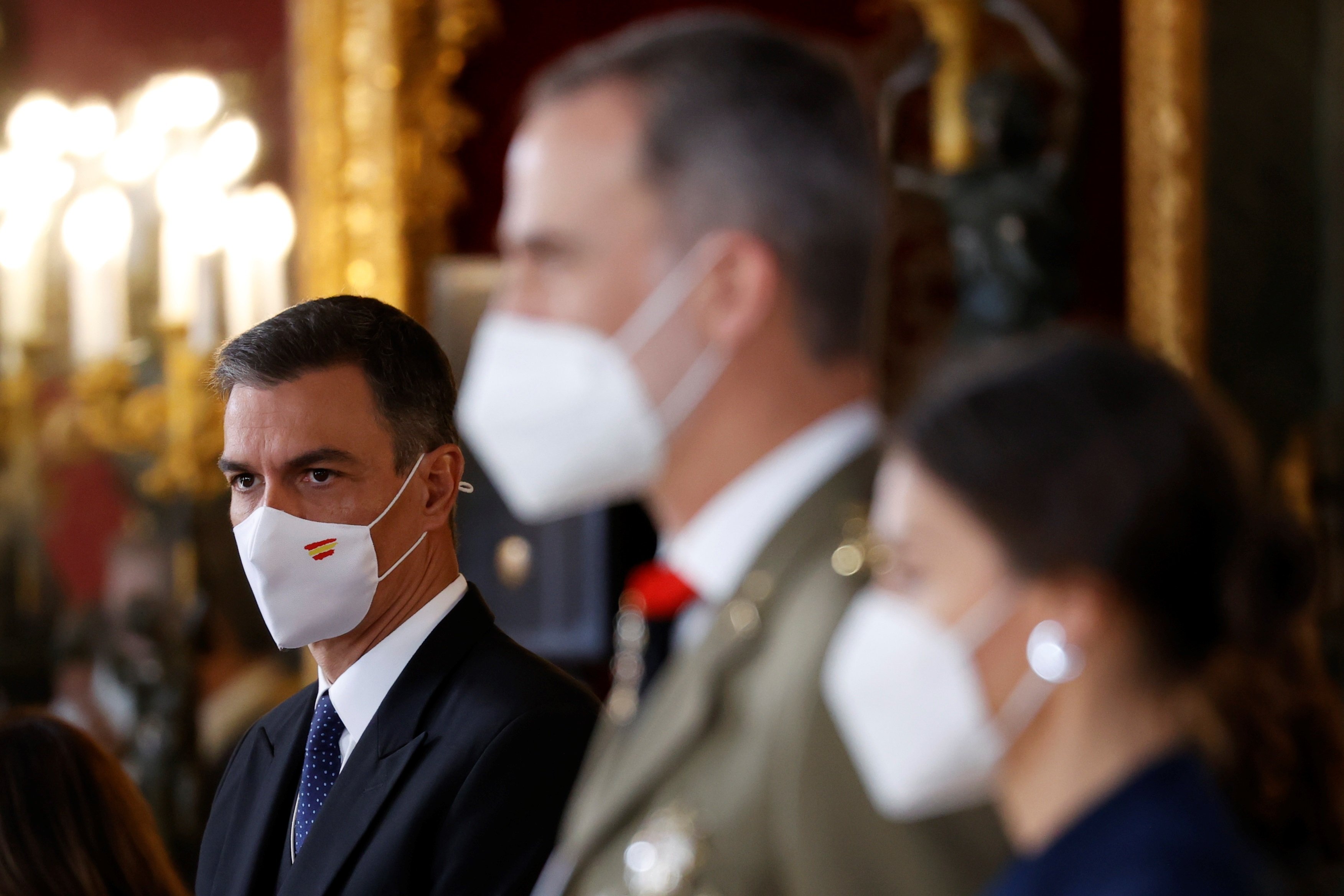Once, Spanish prime minister Pedro Sánchez went as far as to advocate for the removal of the Spanish king's inviolability before the law. In an interview last autumn, the leader of the Spanish Socialists backed "opening the debate to update the constitution" and among the issues to be reviewed was the impunity of monarchs: "I don't think this condition is necessary for the head of state," he said. But in the week that the issue has been on everyone's lips, precisely because it has prevented the public prosecutors from continuing with their investigation of the financial affairs of former king Juan Carlos I, the government has dropped the issue again. This was stated by the justice minister, Pilar Llop, who argued that the majorities needed to reform Spain's fundamental legal document cannot be achieved.
As was envisaged, Juan Carlos I will not face any criminal charges. This Wednesday, after two years of investigation, the public prosecutors serving the Supreme Court closed their investigations into the opaque financial practices and possible corruption of the former king. Among these, the alleged commissions for the construction of the Saudi Arabian high speed rail line, awarded to Spanish contractors. The reasons for tossing out the case were several: from a lack of evidence to the prescription of offences under the statute of limitations, and as well, the fact that actions taken by the now-retired king during his 39 year reign are protected due to his status of constitutional inviolability. Even so, the public prosecutor's office did reiterate that there were irregularities, such as the concealment of money abroad that was not declared to the Spanish treasury. But none of this could be legally pursued.
Asked about the matter this Friday in a post-cabinet meeting press conference, Pilar Llop expressed her "absolute respect for the investigation and the opinions of the prosecutor's office", noting that, as in any other investigation, it has been pursued "within their autonomy and independence". In the face of the king's inviolability, the justice minister remitted to the Spanish constitution, which establishes the monarch's impunity while on the throne, and that now "there would not be the majorities needed to address any reform that has to do with this" - requirements that would include 60% votes in favour in both Spanish houses. And thus the debate is closed.
In recent months, there has been speculation about a possible return to Spain of the emeritus king once the expected closure of the prosecutors' investigations came about. As soon as the news was made public, the law firm representing Juan Carlos de Borbón declared in a statement that "in the coming days" it will transfer the texts of the prosecutors' decrees to its client. It will pass on information on "whatever decisions Juan Carlos might take" and will communicate them "in a timely manner". Meanwhile, the Moncloa government palace maintains total silence on the possibility of the return of a figure who left in disgrace.
Message to Feijóo
It is precisely the question of Juan Carlos I that Llop used as a reminder that the Spanish government "complies with the constitution" and that the main opposition party must do the same, with the renewal of the constitutional bodies that have expired. She was sending a message to the man who is likely to become the next leader of the Partido Popular, Alberto Núñez Feijóo, the consensus candidate for the party congress to be held on April 1st and 2nd in Seville. The issue, above all, is the appointment of new members for the state's highest judicial body, the General Council of the Judiciary, long expired due to the inability of the major political parties, the PP and PSOE, to reach agreement, and which stands out like a sore thumb as evidence of the problems of Spanish democracy.
On the possibility of breaking this democratic deadlock, the justice minister is upbeat: "We are expectant, a new scenario has opened up," she said, emphasizing how the Galician candidate for the PP presidency speaks of a sense of state. "I hope that this sense of state will be demonstrated in a first action: the renewal of the General Council of the Judiciary, which is a matter of state," Llop claimed. And she also called for a "second gesture" - creating a democratic cordon sanitaire "on the far right, on Vox", which "is what is expected of a party of state".

